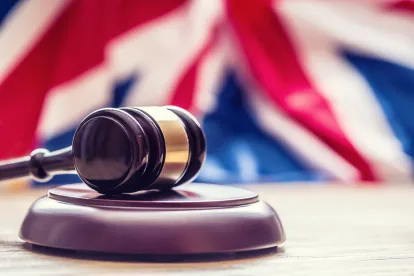Whilst we all try to settle in to our new working from home routines, and maintain social distancing measures, the civil justice system is also having to find ways to adapt. Early messages from Court system that it would be ‘business as usual’ quickly proved impossible; but over the past week there have been procedures put in place across the civil courts, focussing on keeping the wheels of civil justice moving forward during the Covid-19 pandemic.
A number of the divisions of the High Court have issued guidance or information on holding fully or partially remote hearings, and courts are operating under a new protocol regarding remote hearings issued by the Judiciary. A new practice direction has also been introduced supporting increased provision for audio or video hearings.
In summary, the protocol suggests the following approach:
-
The vast majority of hearings will take place either fully or partially remotely. This will be either via telephone, Skype, or other audio-visual means.
-
Wherever possible, hearings should still be held in public, either by the recording being played in a court room, allowing journalists to log on to the virtual hearings, or live streaming of hearings (where this is permitted under existing legislation, the Coronavirus Act 2020 extended existing legislation to increase the circumstances where hearings can be broadcast). It is yet to be seen how many public hearings will take place in this way. It does appear though that more hearings will be held, in effect, in private. Hearings can already be held in private where this is necessary to secure the proper administration of justice, a requirement that certainly appears wide enough to capture the current circumstances.
-
Hearings will continue to be recorded by the Court (and can still not be recorded by the parties).
-
Electronic bundles will become the norm for these remote hearings. This requirement has been accompanied by a(nother) reminder for parties to limit the contents of bundles to those documents actually required for the hearing.
-
Parties have been encouraged to be more pro-active in preparing the arrangements for hearings to take place.
-
In some cases though, where a remote hearing is not possible and the length of the trial, location of parties or witnesses involved or other issues mean that a court hearing would be undesirable, adjournments will still be made.
How is it working in practice?
-
The Law Society Gazette has reported on an order granted by the High Court to enable parties to a dispute to agree extensions of up to 56 days without Court intervention (an increase on the 28 days parties can usually agree).
-
We also understand an application to adjourn a trial of a high value claim was refused, and has instead been taking place with the parties, their legal representatives and the Court operating remotely.
-
Indeed, a look at the cause list for the Business and Property Courts in London shows a number of hearings taking place either via telephone, Skype or Zoom. Some of these hearings also appear to be being broadcast to court rooms.
-
Finally, one of our team secured an order this week for a strike out following a hearing which took place entirely via telephone.
We will no doubt hear further examples of how this new system is working in practice over the coming weeks. It will also remain to be seen whether the experience leads to greater adoption of remote hearings after this period of immediate need comes to an end.
At the moment, for most businesses their priorities are more immediate than thinking about legal proceedings. However with the upsets to the market and supply chains we have seen as a result of Covid-19, it seems inevitable that disputes and court proceedings will follow before too long. It is reassuring, therefore, to see the Court embracing technology to ensure it can continue to work so far as possible to facilitate dispute resolution.




 />i
/>i

